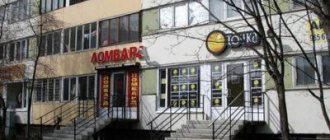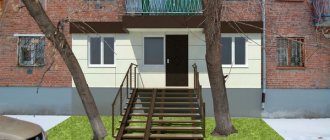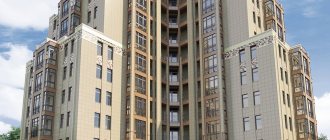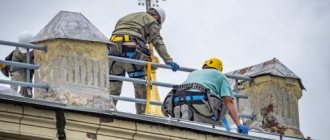Apartment buildings are complex engineering structures consisting of residential apartments, common areas and infrastructure that provides residents with utilities.
For the normal functioning of the house, it is necessary to carry out repairs and maintenance of premises and communications; the procedure for carrying out such work is regulated by the Government of the Russian Federation. Dear readers! To solve your specific problem, call the hotline or visit the website. It's free.
8 (800) 350-31-84
Purpose of the document
These Rules establish the requirements, as well as the procedure for repair and maintenance of housing stock.
This is done for the following purposes:
- guaranteeing the safety of the housing stock of all forms of ownership;
- implementation of a unified policy in the housing sector aimed at ensuring compliance with the requirements of current standards stipulating the maintenance and repair of residential buildings and adjacent areas, engineering systems and structural elements;
- ensuring compliance with standards governing the maintenance and repair of housing stock, both by owners and authorized managers and organizations (regardless of the organizational and legal form) involved in servicing this housing stock.
Let's consider the general provisions of the Rules.
Frequency of work
The frequency of scheduled building inspections is given in Appendix No. 1 to Resolution No. 170 and is the following periods:
- inspection of furnaces and ventilation shafts - once a year;
- checking flue pipes from hot water supply heating columns - once a year;
- inspection of watering devices and drainage systems from the roofs of houses - once a year;
- inspection and repair of the heating system - 2 times a year;
- inspection of garbage chutes, as well as hot and cold water supply systems - as necessary.
The frequency of inspection and repair of thermal communications between buildings, as well as power supply networks for common premises and high-voltage electric stoves installed in apartments, is determined by the terms of the contract with contractors.
The repair and maintenance contract is concluded between management organizations or housing associations, on the one hand, and special engineering services, on the other. The frequency of inspection under the terms of the contract must comply with the technical regulations for building maintenance adopted in the region, taking into account the type of soil and climatic features of the territory.
In addition to scheduled inspections, the organization servicing the house must prepare the house for seasonal operation at least twice a year - in the spring preparations are made for snow melting and floods, in the fall the heating system is reactivated and tested.
The general meeting of HOA members has the right to establish in the charter the frequency of cleaning of common premises and local areas, as well as the frequency of inspection of elevators and garbage chutes.
If the house is equipped with gas stoves, then the housing association is obliged to enter into an agreement with the city gas service for a preventive inspection of the house’s gas equipment and individual indoor valves at least once a year.
Technical operation of the housing stock implies:
- housing stock management, including organizing operation, performing all types of work with tenants and tenants, cooperation with related enterprises and suppliers;
- maintenance and repair of engineering systems of buildings, building structures, including emergency and dispatch service, current and overhaul, preparation for seasonal operation, inspections;
- sanitary maintenance, including cleaning of local areas and common areas, care of green spaces.
Current rules for the operation of housing stock
The operation of apartment buildings means the use of common and special premises, as well as equipment and communications located in such premises to ensure comfortable living for owners and tenants and provide them with utility resources - hot and cold water, electricity, etc.
The operating standards for residential buildings are regulated by the following documents:
- Resolution of the State Construction Committee No. 170;
- Government Decree No. 290.
Resolution No. 170 provides the procedure for organizing the maintenance and repair of common premises, as well as the rules for maintaining the adjacent plot of land. Resolution No. 290 contains a minimum list of work necessary to maintain a house in a condition suitable for comfortable and safe living.
The rules given in Decree No. 170 describe the following aspects of the operation of apartment buildings:
- the procedure for maintenance and ongoing repairs of communications and common areas;
- frequency and timing of work;
- features of house maintenance depending on the type of land on which the house is located and the composition of the soil in the local area;
- the procedure for registering applications from residents for repairs;
- methods for troubleshooting heating stoves;
- a list of mandatory routine repairs depending on the type of property being serviced.
The procedure for standard home maintenance involves conducting scheduled inspections at intervals determined by Resolution No. 170, regional legislation and the charter of the service organization (MC or HOA).
During scheduled inspections, immediate repairs of minor faults are carried out and a list of planned repairs that require preliminary preparation is compiled.
Section 6 of Decree No. 170 describes the rules for the operation and repair of buildings located in the areas:
- subsidence soils;
- saline soils;
- territories for mining blasting;
- seismically active areas;
- permafrost.
When operating buildings located in areas of subsidence soils, constant monitoring of the water supply system should be carried out to avoid leaks, especially in basements. It is also necessary to keep records of emergency situations and post-accident inspections of foundation fastenings.
In areas of saline soils, it is necessary to check the protection of metal fastenings of basements from corrosion by periodically renewing the paint layer. In areas with high seismic activity, it is important to conduct a timely engineering analysis of the consequences of tremors to assess the safety of further operation of a residential building.
If an apartment building is located in permafrost, during its operation it is necessary to monitor the temperature regime of the permafrost near the foundation , preventing it from being flooded by flood waters.
Responsibilities of citizens and legal entities
Citizens and legal entities are charged with the following responsibilities:
- related to the use of residential premises (utility premises, equipment) without infringing on the rights and freedoms of other citizens;
- careful attitude to the housing stock (land plots);
- compliance with sanitary and hygienic, environmental, architectural, urban planning, fire safety and operational requirements;
- timely payment of housing (utilities), payments on housing loans.
The owners of the housing stock, as well as their authorized representatives, must also make timely adjustments to the as-built documentation, which reflects the layout of the premises, structural elements and engineering equipment.
Such changes, the occurrence of which is usually associated with repairs, reconstruction, modernization and redevelopment, must be recorded in the registration certificate for the house (building, land plot).
Housing stock
In accordance with the second part of Article 19 of the Housing Code of the Russian Federation, the state’s housing stock is divided into the following categories:
- Private fund – residential premises owned by private and legal entities.
- State fund - residential premises that are owned by the Russian Federation, as well as objects that belong to various constituent entities of the Russian Federation.
- Municipal fund - residential premises that belong to various municipalities.
The bulk of the state's housing stock is owned by legal entities and private homeowners.
Long-term storage technical documentation
Such documentation includes:
- passports (boiler and elevator facilities, for an apartment, each residential building and land plot);
- acts (acceptance of houses from construction companies, technical condition of a residential building for transfer of housing stock to another owner);
- diagrams (intra-house water supply networks, central heating, sewerage, heat, gas, electricity, etc.);
- design and estimate documentation plus as-built drawings for each house;
- site plan (scale 1:1000 - 1:2000) where residential buildings and structures are located.
Amendments to technical documentation for long-term storage should take into account changes in technical condition, major repairs, reconstruction, revaluation of fixed assets, etc.
Housing Fund under the President
The housing department under the President of the Republic of Tatarstan is actively working to attract extra-budgetary funds within the framework of state programs for financing a number of construction projects. In the process of implementing a number of projects, the fund acts as a customer-developer. In this status, the organization attracted almost all construction companies actively working in the Republic of Tatarstan to investment activities. In total, more than 10 design companies and about 150 contracting companies are working on the construction of various facilities.
Conditions and procedure for re-equipment
Refurbishment of premises (residential and non-residential) in houses can be carried out only after obtaining the appropriate permits.
This process may include:
- installation of a household electric stove instead of a gas stove;
- installation of a portable heating plumbing (gas) appliance;
- refurbishment or construction from scratch of toilets and bathrooms;
- replacement or laying of new pipelines (supply and discharge);
- replacement or installation of electrical networks (devices) for the installation of shower cabins and other appliances.
Redevelopment applied to residential premises may concern:
- partitions, their disassembly and transfer;
- doorways, their arrangement and transfer;
- multi-room apartments, their disaggregation (enlargement);
- kitchens and bathrooms, their arrangement as additional rooms;
- living space, its expansion due to auxiliary premises;
- vestibules, their construction and re-equipment.
Housing Department
DZhPiZhF (Department of Housing Policy and Housing Fund of the City of Moscow) operates under the leadership of the Moscow Government and is considered one of the executive authorities of the capital of the Russian Federation. The department belongs to the social sphere institutions. The main goal pursued by the organization is the development and implementation of uniform standards for housing policy in Moscow. DZhPiZhF acts on behalf of the owner of residential premises in the city of Moscow if it is necessary to implement housing programs, solve social problems, as well as dispose of residential premises.
Maintenance of housing stock
The basic principles that the state adheres to in the operation of housing premises:
- Protection and control of the interests of the state, as well as citizens in the process of repair work, as well as control over compliance with the requirements of design estimates and regulatory documentation during repairs.
- Control over compliance with the requirements of housing and urban planning legislation by contractors, management companies and citizens.
- Timely warning by identifying violations during major repairs, as well as qualified elimination of the consequences of violations.









